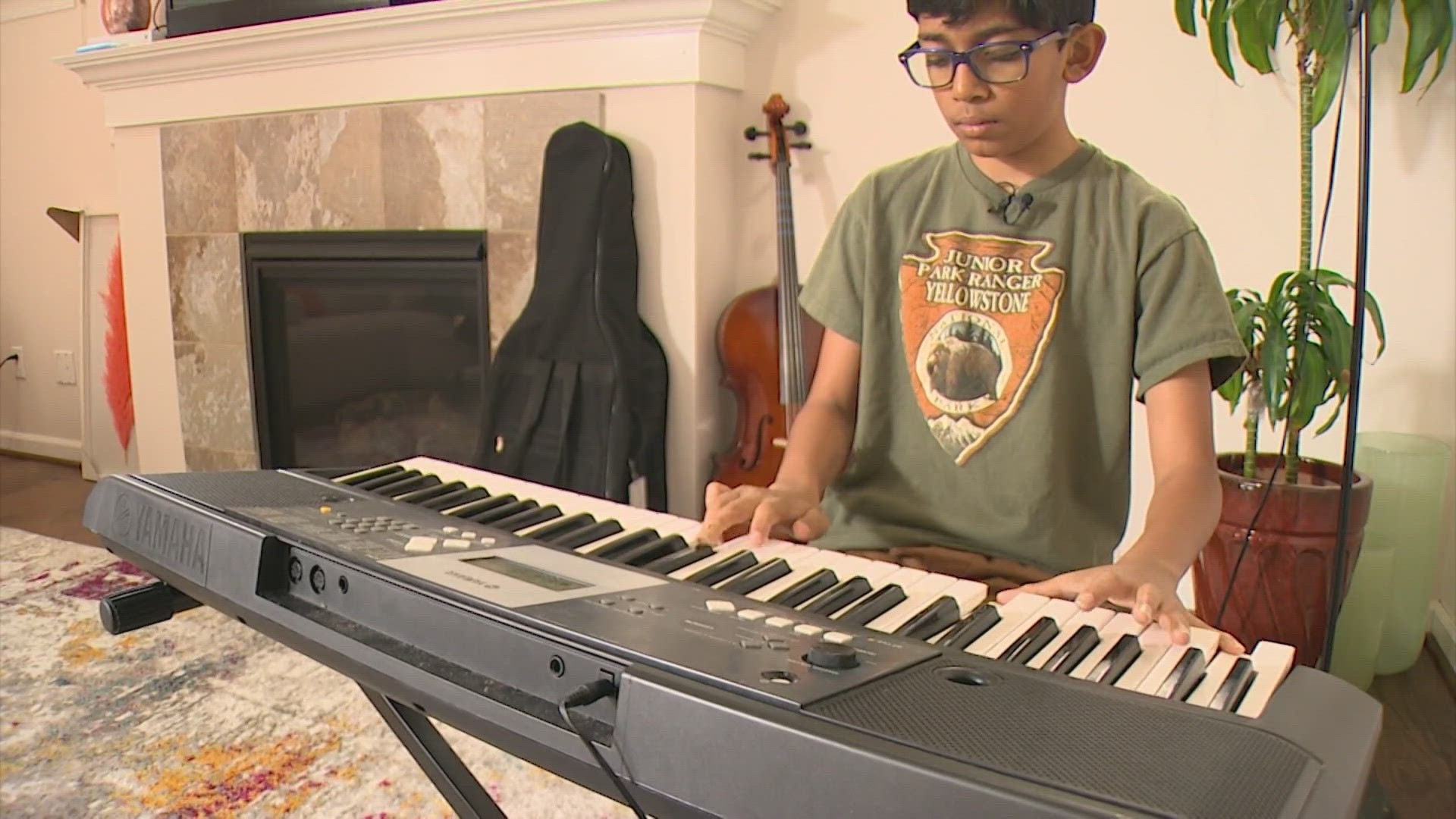BOTHELL, Wash. — At just 11 years old, Atharva Johri already plays three instruments.
He credits the fifth-grade music program at his former elementary school for sparking his interest.
"That makes me feel pretty satisfied," he said. "Yeah, pretty happy."
However, facing a budget shortfall of $26 million, the Northshore School District recently voted to eliminate the fifth-grade band and orchestra.
"In my mind, I was like, wait, why are they doing this?" Johri wondered. "They shouldn't actually be cutting out music."
The reason is because it will save the district $780,000 per year.
Community members have been fighting to save the program, but the district considers it a done deal.
The teacher's union has already signed off on the cuts.
In a statement to KING 5, a district spokesperson says, "We all wish it was different, but without full funding of public education, we are left with very few options. All students will still have access to general music K-5 and the opportunity to take band or orchestra in sixth grade. Additionally, we were able to preserve seven periods for high school students, providing more elective opportunities that include visual and performing arts."
But music teacher Melissa Newman said the budget isn't final until July and she believes there is still room for negotiation.
"I feel it's the right thing to do, but also when I was a little girl I promised myself when I was a big kid I would stand up for the little kids," said Newman. "That's what I'm doing."
Nationally, about 7,000 schools have no music programs whatsoever -- predominantly in low-income and BIPOC communities.
Newman said if the cuts stay, a significant number of students will have no access to playing music.
"Some kids in our district just don't have the opportunity, the time, the resources to be involved in a youth orchestra. There's just not the time. Parents are working two jobs," she said.
Families may have one last hope.
Dr. John Benham has worked to save school music programs across the country with some success.
He is paid with donations from community members and music businesses. In April, he will visit the district to crunch some numbers and determine whether there is a better way to save money.
Benham said eliminating fifth-grade programs often costs more in the long run either through bigger class sizes or lower enrollment.
"If you start elementary music after grade five you lose 65% of enrollment by four years at the secondary level. So, that will cause a significantly greater increase in class size than what they're thinking," Benham said.
As for Johri, he has his own ideas about how to save money.
"They could cut a small part of P.E., a very small fraction of music, a small amount of library, and so forth rather than blowing it off and cutting music once and for all," he said.

